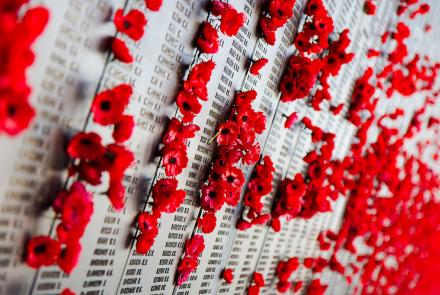
Photo by Edward Dalmulder on Flickr.
Lest we forget
It seems that almost everywhere you look or turn these days you catch an image of Anzac or Gallipoli.
While it’s understandable, as in 2015 we are celebrating Anzac Day on the 100th anniversary of the landing of our troops at Gallipoli, I am both impressed and fascinated at how the community interest has grown over the last couple of decades.
I had the opportunity back in 1990 to attend the 75th anniversary, when the Hawke Government sponsored a pilgrimage back to Gallipoli for the remaining Gallipoli veterans. In the end, about 58 Gallipoli veterans attended, mostly aged over 90, along with a few war widows, carers, medical and other staff, and selected media – a full RAAF Boeing 707.
It was a truly memorable and moving experience, especially to spend time with the veterans as their memories were rekindled – especially at the Dawn Service and Lone Pine. On an interesting note, just as with the original landing, these vets were dropped by their bus transport further down the beach than the planned location for the Dawn Service.
Many of them had sought to put the war behind them, not wanting to talk much about it. Some had never been on a plane, indeed, had returned from the war and not moved more than a few kilometers from their homes since then. Others searched the memorials for the names of brothers and friends who they had never heard from again. One of the most moving events was when some met and embraced the Turks they had fought so hard against.
At the time, I was struck by the significant number of young Australians who had travelled for the occasion, and to listen to their reasons for doing so. However, since then, there has been a veritable flood, soon topping 15,000 just a few years later, such that numbers for this year’s anniversary had to be restricted to 8,000 Australians and 2,000 Kiwis.
Back in 1990, the area was still pretty much undeveloped, but the rekindled interest, from both our side and from the Turks, has seen it developed as more of a tourist destination and, in particular, a number of new Turkish memorials have been built since then. The Allied memorials were built as early as 1926.
There is undoubtedly a craving from the younger generations to learn more of their grandfathers and fathers, and Anzac Cove has become something of a Mecca for both the Aussies/Kiwis and the Turks as well. Schools, both here and in Turkey, have also been instrumental in generating and regenerating interest, as has the internet with various ancestry sites.
Still, many have difficulty understanding just how it is, that such a futile military operation, that failed so conspicuously to meet its objectives, could become the stuff of legend.
The objectives to capture Constantinople, and effectively knock the Ottoman Empire out of the war and thereby open up access for Allied navies to the Black Sea, were unfortunately not realised.
With such a high cost, an astonishingly high loss of life on all sides, coupled with abject defeat, for Gallipoli to be described much later “to have defined our national character”, is perplexing to say the least. Equally that Gallipoli was, as Hawke said at that 1990 Dawn Service, “in one sense, a part of Australia”. But fortunately, the legend lives on.
One of my most vivid memories of that 1990 visit was standing on the headland at the Dawn Service, side by side with those veterans, as the dawn progressively broke, staring down the incredibly steep and rough terrain to the beach. And realising the significance of the Turkish embattlements on the headland, and asking myself, how could anybody have ever imagined anything less than slaughter?
Clearly, the young, inexperienced, idealistic men, swept along by the moment and the spirit of camaraderie, did their best. Perhaps this infectious desire to act as one was forged in the fact that as a nation, Australia was only 14 years old and that the battle at Gallipoli was the first time Australians were united, and supported by the Kiwis, as two tiny and distant nations fought a common foe.
As a nation, we could never have asked for more. Indeed, we owe them. We owe them our Australia of today. Lest we understand, but don’t forget.
Updated: 27 July 2024/Responsible Officer: Crawford Engagement/Page Contact: CAP Web Team













